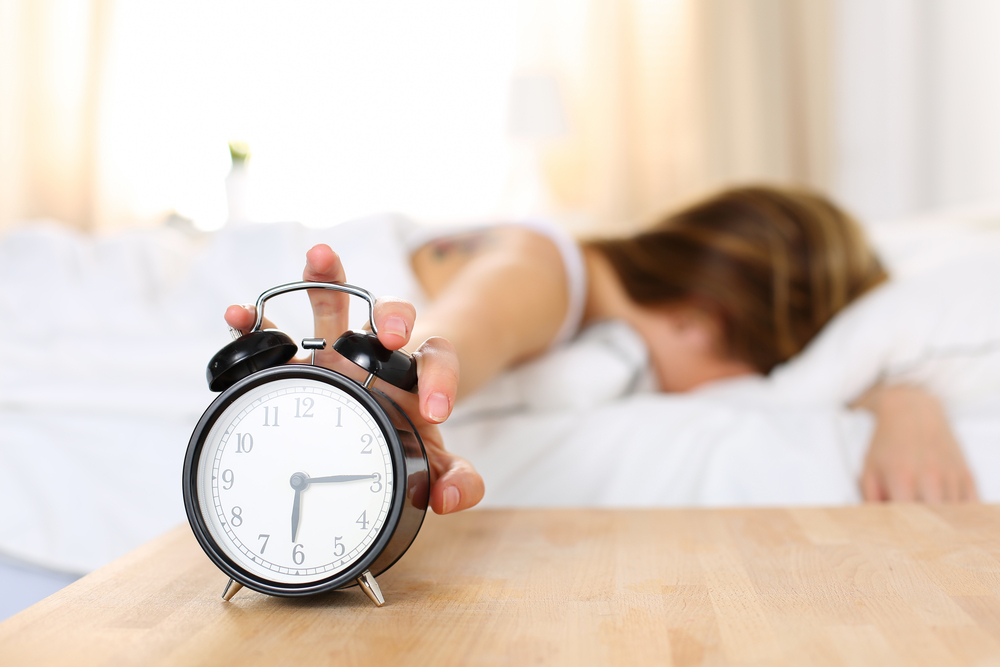
Sleep is an essential and crucial part of everyday life, and yet 1 in 3 people suffer from poor sleep. Our quality of sleep has huge impacts on our physical and mental health, quality of life, stress levels, work performance, and overall happiness. If you are feeling stressed, anxious, or depressed, focusing on getting a good night’s sleep can make critical differences to your mood and wellbeing.
Therefore, we are exploring how and why sleep is so important, and what you can do to reap the benefits of a good night’s sleep.
Why is Sleep Important?
There is still a lot scientists don’t know about what happens during sleep and its function. A normal sleeper will cycle between REM (rapid eye movement) sleep and deep sleep every 90 minutes. Deep sleep is essential for producing physiological changes that help boost immune system functioning. REM sleep is the period of sleep where people dream. Research shows that REM sleep enhances learning and memory and contributes to long-term emotional health.
Key benefits of a good night’s sleep include:
How Much Sleep Do I Need?
Different people need different amounts of sleep due to factors such as age, lifestyle, genetics, location, and health. The average adult needs 7 to 9 hours each night.
Disrupted sleep significantly affects your wellbeing. Scientists believe sleep disruption impacts the levels of neurotransmitters, stress hormones, and brain chemicals, effecting our thoughts and emotions.
More than 70 types of sleep disorders exist. They include Insomnia (difficulty falling or staying asleep), Sleep Apnoea (disordered breathing that causes multiple awakenings), and Narcolepsy (extreme sleepiness or falling asleep during the day).
Sleep problems are also very common amongst people struggling with depression and anxiety disorders. Sleep difficulties are also common in people diagnosed with ADHD.
What Causes Sleep Difficulties?
Sleep issues can be caused by:
Tips for Improved Sleep
Health Professionals around the world regularly share pre-sleep strategies and checklists. Whilst these might be great for education, a heightened focus on “do’s and don’ts” around sleeping can actually increase hyper-arousal, and be counterintuitive.
Good sleep health is best achieved through understanding what affects our sleep quality and taking a problem-solving approach to resolving negative factors. That being said, here are some simple tips that may support a good night’s sleep.
1. Have a Regular Sleep Schedule
Try to wake up and go to bed at the same time. Integrate a wind-down routine. Avoid sleeping in late on the weekends as it can disrupt your sleep pattern.
2. Create Sleep Rituals
It is helpful to have certain rituals you do every night before going to bed that help train your brain associate this ritual with winding down for sleep. 30 minutes beforehand, try drinking a relaxing caffeine-free tea, burning relaxing candles or essential oils, or doing a mindfulness meditation or breathing exercise.
3. Don’t Force Sleep
If you haven’t fallen asleep after 20 minutes, get up and do something relaxing. Spending too much time awake in bed can increase stress. Try reading a book, drawing, writing in a journal, or listening to music, then returning to bed when you feel sleepy.
4. Avoid Napping
Avoid taking naps in the day time to ensure you feel tired at bedtime. If you really need to, ensure it is before 3 pm and is no more than 20 minutes in length.
5. Avoid Caffeine, Alcohol, and Nicotine
Avoid consuming any of these substances 4 to 6 hours before falling asleep. Caffeine and nicotine are stimulants for the brain, making you feel more awake. Alcohol reduces your quality of sleep, often causing you to wake up regularly in the night and disrupting your REM sleep.
6. Limit Screen Time Closer to Bedtime
Try not to use any electronic devices 1 to 2 hours before you want to fall asleep. Blue light of electronic devices significantly impacts your body’s internal clock and suppresses the sleep hormone melatonin.
7. Keep your Bed Reserved for Sleep
Try not to use your bed for anything other than sleep or intimacy. This will help your brain associate your bed with sleep, making it easier for your brain to switch off and for you to fall asleep.
8. Exercise and Eat Well
Regular exercise is significantly linked to improved sleep. Exercise is also a stress-reliever which can mean your mind is less busy at night, and you are able to fall asleep more quickly; avoid strenuous exercise four hours before wanting to fall asleep.
Eat a healthy, balanced diet as this can help you fall and stay asleep. Avoid heavy meals and sugar two hours before bed time.
9. Create a Calming Sleep Environment
Make a relaxing sleep environment by ensuring your bed is comfortable and soothing and you are not too hot or cold while sleeping. Use black-out curtains or an eye-mask. Turn off as many lights as possible or dim them. Invest in some ear plugs if necessary.
10. Track your Sleep
Track how many hours you are sleeping either through a sleep diary, a sleep tracking app, or fitness watches. Tracking your sleep can help you examine your current sleep hygiene, and can help you understand if the changes you are implementing are making a positive difference.
P: 1300 364 273 | Text or Live Chat: 0401 337 711 | W: acaciaconnection.com